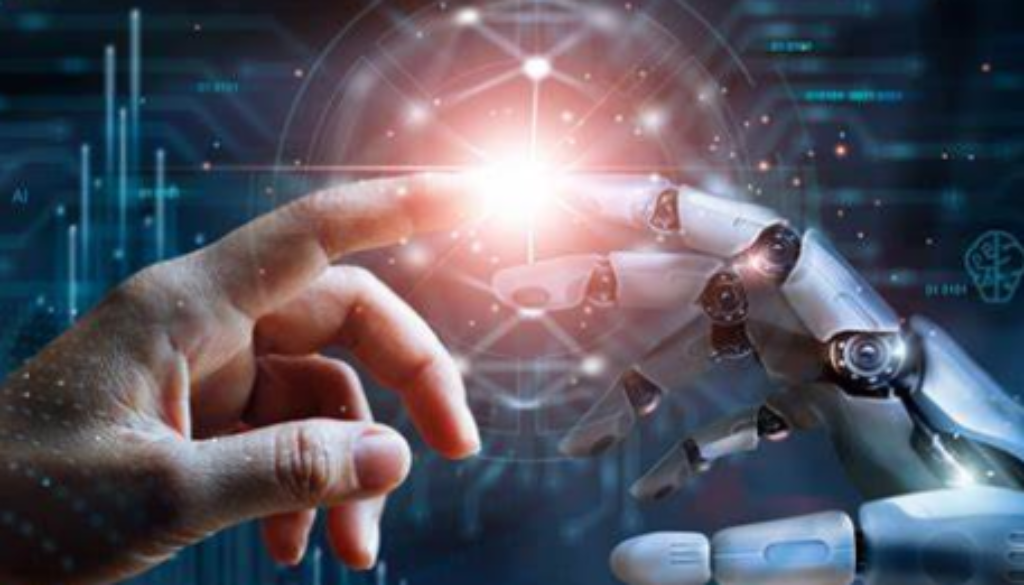AI and Machine Learning in Everyday Life: Revolutionizing the Ordinary
Artificial Intelligence (AI) and Machine Learning (ML) have transcended the realm of science fiction, becoming integral parts of our daily lives. From the moment we wake up to the time we go to bed, AI and ML are at work, enhancing our routines, making processes more efficient, and adding layers of convenience we once couldn’t have imagined. Let’s dive into the fascinating ways AI and ML are shaping our everyday experiences.
The Morning Routine: AI as a Personal Assistant
Your day likely starts with an alarm, and if you use a smart assistant like Google Home or Amazon Alexa, AI is already at play. These devices use machine learning algorithms to understand your sleep patterns and suggest optimal wake-up times. They can even gradually increase the alarm volume to wake you up more gently, improving your morning mood.
Once you’re up, your smart assistant can brief you on the weather, news, and traffic conditions, all personalized based on your past preferences and current location. This seamless integration of AI into daily routines saves time and provides a more tailored experience.
Home Automation: Making Living Spaces Smarter

Smart homes are no longer a futuristic concept; they are a reality, thanks to AI and ML. Devices like smart thermostats (e.g., Nest) learn your temperature preferences and adjust accordingly, ensuring your home is always at the perfect temperature. These thermostats can also predict when you’ll be home and adjust settings to save energy, cutting down on your utility bills.
AI-powered security systems add another layer of convenience and safety. Cameras with facial recognition can identify family members and differentiate between a potential intruder and a harmless visitor, sending real-time alerts to your phone. Smart locks can be controlled remotely, allowing you to let in guests or service providers even when you’re not at home.
Personalized Entertainment: Tailored to Your Taste
Netflix’s recommendation system, for example, goes beyond just suggesting what you might like based on past viewing. It also considers factors like the time of day you watch certain genres, whether you binge-watch or savor content, and even how similar your viewing habits are to other users.
Streaming services like Netflix and Spotify use sophisticated machine learning algorithms to analyze your viewing and listening habits. These platforms create personalized recommendations based on your history, making it easier to discover new shows, movies, or music that match your tastes.
Top 15 YouTube Channels to Level Up Your Machine Learning Skills
Top 15 YouTube Channels to Level Up Your Machine Learning Skills
10 Ways AI and Machine Learning are Transforming Everyday Life with Smart Technology
Artificial Intelligence (AI) and Machine Learning (ML) have revolutionized how we interact with the world around us. These technologies have seamlessly integrated into our daily lives, enhancing convenience, efficiency, and personalization in ways we couldn’t have imagined just a few years ago. Here are ten remarkable ways AI and ML are transforming everyday life with smart technology.
1. Personalized Assistants: Your Digital Concierge
Gone are the days when virtual assistants were mere voice-activated gadgets with limited functionalities. Today, AI-powered personal assistants like Amazon’s Alexa, Apple’s Siri, and Google Assistant can manage a multitude of tasks. From setting reminders and answering queries to controlling smart home devices, these assistants learn from your habits and preferences to provide a more personalized experience. They can even anticipate your needs, suggesting activities or information before you ask.
2. Smart Home Automation: A Seamless Living Experience
Smart home technology is a prime example of how AI and ML have made our living spaces more comfortable and efficient. Smart thermostats like Nest learn your schedule and adjust the temperature accordingly, ensuring your home is always at the perfect climate while saving energy. AI-enabled lighting systems can adjust the brightness and color based on the time of day or your activities. Security systems with facial recognition enhance safety by distinguishing between familiar faces and potential intruders.
3. Enhanced Entertainment: Tailored to Your Taste
Streaming services such as Netflix, Spotify, and YouTube have become experts at knowing what you like. Their recommendation algorithms analyze your viewing and listening habits to suggest content you’re likely to enjoy. This personalized approach not only makes it easier to find new favorites but also keeps you engaged with content that’s just right for your mood and preferences.
4. Health and Fitness: Your AI Personal Trainer
AI has become an invaluable ally in health and fitness. Wearable devices like Fitbit and Apple Watch track your physical activity, heart rate, and sleep patterns. They use this data to provide insights into your health, recommend fitness routines, and even alert you to potential health issues. AI-powered apps can create customized workout plans and nutritional guidelines based on your goals and progress.
5. Smart Shopping: A Better Retail Experience
Online shopping platforms like Amazon leverage AI to enhance the shopping experience. They use machine learning to analyze your browsing and purchase history, suggesting products you might be interested in. In-store, AI is transforming retail with features like smart mirrors that recommend outfits and mobile apps that help you locate products. This personalized shopping experience not only makes it easier to find what you need but also introduces you to new products tailored to your tastes.
6. Efficient Travel and Navigation: Your Smart Travel Guide
AI-driven navigation apps like Google Maps and Waze use real-time data to provide the fastest routes, taking into account traffic conditions, accidents, and road closures. These apps learn from user data to continually improve their accuracy and efficiency. Additionally, travel booking platforms like Expedia use AI to predict the best times to book flights and hotels, helping you save money and plan more efficiently.
7. Advanced Communication: Bridging Language Barriers
AI-powered tools have revolutionized communication by breaking down language barriers. Apps like Google Translate use neural networks to provide real-time translations, making it easier to communicate with people who speak different languages. AI is also enhancing customer service through chatbots and virtual assistants that provide instant, accurate responses to queries, improving the overall user experience.
8. Financial Management: Smart Banking and Budgeting
AI and ML are transforming the financial sector by providing smarter banking solutions and personal finance management tools. Banks use AI to detect fraudulent activities by analyzing transaction patterns and flagging anomalies. Personal finance apps like Mint use machine learning to analyze your spending habits, offering insights and recommendations to help you manage your budget and save money more effectively.
9. Education: Customized Learning Experiences
The education sector is benefiting greatly from AI and ML. Personalized learning platforms like Khan Academy and Coursera use machine learning to adapt lessons based on a student’s performance, ensuring that the content matches their learning pace and style. AI-powered grading systems provide instant feedback on assignments, freeing up educators to focus more on teaching and interacting with students. Virtual tutors can also assist students with homework, offering explanations and guidance when needed.
10. Autonomous Vehicles: The Future of Transportation
Self-driving cars are perhaps the most talked-about application of AI. Companies like Tesla, Waymo, and Uber are developing autonomous vehicles that can navigate roads, avoid obstacles, and learn from the driving habits of other vehicles. These cars use a combination of sensors, cameras, and AI algorithms to make real-time driving decisions. While fully autonomous vehicles are still in development, AI is already improving driver-assist features in existing cars, making them safer and more efficient.
Health and Fitness: AI as Your Personal Coach
AI’s role in health and fitness is growing rapidly. Wearable devices like Fitbit and Apple Watch track your physical activity, heart rate, sleep patterns, and more. These devices use machine learning to provide insights into your health, suggest fitness goals, and even alert you to potential health issues.
Apps like MyFitnessPal leverage AI to analyze your diet, track your calorie intake, and provide nutritional advice. They can learn your eating habits over time and offer personalized recommendations to help you achieve your health goals.
Smart Shopping: Enhancing the Retail Experience
Online shopping has been transformed by AI and ML. E-commerce giants like Amazon use machine learning algorithms to predict what products you might be interested in based on your browsing and purchase history. This not only improves your shopping experience but also increases the likelihood of finding exactly what you need.
AI And Machine Learning Full Course | Artificial Intelligence & Machine Learning Course |Simplilearn - YouTubeIn brick-and-mortar stores, AI is used to manage inventory, predict demand, and even enhance the shopping experience. Smart mirrors in fitting rooms can suggest outfits based on what you’re trying on, and mobile apps can guide you to the products you need within the store.
Travel and Navigation: Simplifying Journeys
Travel has become significantly more convenient with the integration of AI. Navigation apps like Google Maps and Waze use real-time data and machine learning algorithms to provide the fastest routes, taking into account traffic conditions, accidents, and road closures. These apps learn from user data to continually improve their accuracy and efficiency.
AI is also transforming the travel booking process. Platforms like Expedia and Kayak use AI to predict the best times to book flights and hotels, helping you save money. Chatbots on travel websites can assist with booking and provide personalized travel recommendations based on your preferences and past trips.
Communication: Bridging Gaps and Connecting People
AI-powered tools have revolutionized the way we communicate. Language translation apps like Google Translate use neural networks to provide real-time translations, breaking down language barriers and making global communication more accessible.

Customer service has also seen a significant upgrade with AI. Chatbots and virtual assistants on websites and apps provide instant responses to customer queries, often resolving issues faster than human agents. These AI systems learn from each interaction, improving their responses over time.
Finance and Banking: Streamlining Financial Management
AI and ML are making waves in the finance sector, enhancing everything from banking to personal finance management. Many banks use AI to detect fraudulent activities by analyzing transaction patterns and flagging any anomalies. This not only helps prevent fraud but also provides customers with a sense of security.
Personal finance apps like Mint and YNAB (You Need A Budget) leverage AI to analyze your spending habits and provide insights into how you can save money. These apps can also predict future expenses and help you create a more accurate budget.
Education: Personalized Learning Experiences
The education sector is benefiting immensely from AI and ML. Personalized learning platforms like Khan Academy and Coursera use machine learning to adapt lessons based on a student’s performance. This ensures that students receive content that matches their learning pace and style, making education more effective and engaging.
AI is also used to grade assignments and provide feedback, freeing up teachers to focus more on instruction and student interaction. Virtual tutors powered by AI can assist students with their homework, providing instant help and explanations.
Transportation: The Future of Mobility
Self-driving cars are one of the most talked-about applications of AI and ML. Companies like Tesla, Waymo, and Uber are at the forefront of developing autonomous vehicles that can navigate roads, avoid obstacles, and even learn from the driving habits of other vehicles. These cars use a combination of sensors, cameras, and AI algorithms to make real-time driving decisions, promising a future with fewer accidents and more efficient transportation.
Public transportation systems are also leveraging AI to improve efficiency. AI can optimize routes and schedules based on real-time data, reducing wait times and improving the overall passenger experience.
Home Cooking: AI in the Kitchen
Even the kitchen is not immune to the influence of AI. Smart kitchen appliances, like ovens and refrigerators, use AI to assist with cooking and meal planning. For example, smart ovens can recognize different foods and adjust cooking settings accordingly, ensuring your meals are cooked to perfection.
Recipe apps use AI to suggest recipes based on the ingredients you have at home, helping you reduce food waste. These apps can also learn your dietary preferences and restrictions, tailoring their suggestions to suit your needs.
Conclusion: The Ubiquity of AI and ML
AI and ML are no longer confined to the realms of tech giants and research labs. They have permeated every aspect of our daily lives, often in ways we don’t even realize. From the moment we wake up to the time we go to bed, AI is there, making our lives easier, more efficient, and more enjoyable.
As AI and ML continue to evolve, we can expect even more innovations that will further integrate these technologies into our daily routines. The future promises a world where AI and ML not only enhance our lives but also drive new possibilities we have yet to imagine.
Embracing these technologies and understanding their impact can help us navigate this new landscape with confidence and curiosity. Whether it’s through personalized recommendations, improved health monitoring, or smarter home devices, AI and ML are undeniably shaping the future of everyday life.




August 20, 2024 @ 11:40 am
10 Ways AI And Machine Learning Are Transforming Everyday Life
ibchtocpf http://www.gc759er5u91jr9b7s4kbo01s094c4bt1s.org/
[url=http://www.gc759er5u91jr9b7s4kbo01s094c4bt1s.org/]uibchtocpf[/url]
aibchtocpf